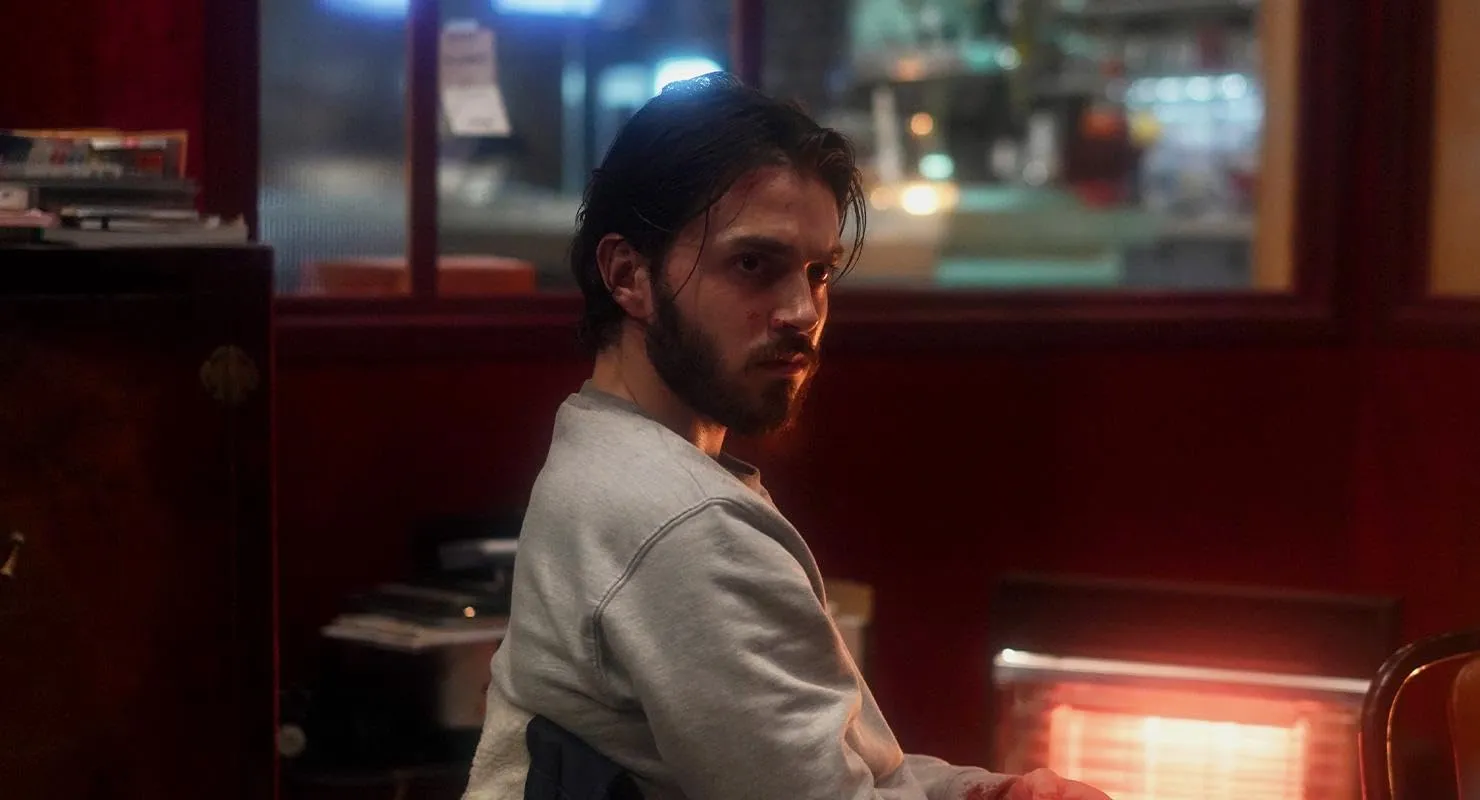In the early morning hours on the outskirts of Paris, Le Roi Soleil serves as a way station for lives in transit. It’s a modest bar where the last dregs of the night mix with the first light of dawn. The air is thick with fatigue and stale beer until a sudden jolt of electricity cuts through the gloom.
Monsieur Kantz, a quiet regular, checks his lottery numbers and discovers a truth that is impossible to whisper: he has just won €294 million. For a fleeting moment, a new reality seems possible. Then, a gun appears. A shot rings out.
The dream vanishes, replaced by a body on the floor and a small paper ticket that now represents an immense, unclaimed fortune. The few remaining patrons, a collection of strangers, are left with a corpse and a choice.
Their decision to forgo a call to the authorities in favor of crafting a collective lie sets in motion a grim descent into greed, paranoia, and bloodshed. The question is no longer who won the lottery, but who will survive to claim it.
A Purgatory Named ‘The Sun King’
The narrative’s engine is not one person but the entire desperate ensemble trapped within the bar’s four walls. At the center of the ill-fated scheme are Livio and Reda, two plainclothes police officers whose attempt to control the situation rapidly dissolves their professional authority into panicked self-interest.
They are not masterminds but flawed men, and their plan is built on a foundation of crumbling nerve. Around them orbit the other witnesses: Nico, the bar’s owner, and Esme, his waitress and a philosophy student, find themselves in a sudden, violent negotiation for their futures.
Abel, a paramedic still shaken by the events of his shift, adds another layer of frayed morality to the group. The setting of Le Roi Soleil itself becomes a primary character in the story. Once the security grilles are lowered, the bar transforms into a moral pressure cooker, a purgatory from which there appears to be no physical or ethical escape.
The tacky, flashing lights of a karaoke machine illuminate the escalating violence with a grotesque quality, turning the grim proceedings into a surreal spectacle. One character’s frantic crawl through a ventilation shaft, only to find it leads back to an adjacent locked room, perfectly captures the story’s thesis: they are already damned.
The Story That Tells Itself Again
Director Vincent Maël Cardona structures his film not as a straight line but as a series of spiraling loops. The narrative frequently rewinds, replaying crucial moments to show the characters workshopping their lies.
This device allows us to see their story being built and rebuilt in real time, a process of collaborative fiction driven by fear. We witness them consider different scenarios, at one point callously suggesting their fabricated story would sound more plausible to police if the assailant were Black.
It is a cynical and telling detail. This narrative technique is an inventive mechanism for exploring the anatomy of a lie and the insidious creep of paranoia. At the same time, this repetition comes with a significant risk.
As the story folds back on itself for another pass, the forward momentum is tested, and a viewer’s engagement can give way to a sense of frustration that mirrors the characters’ own entrapment. What keeps the film from collapsing under this structural weight is the proficient camera work and editing, which find new ways to map the confined geography of the bar and maintain a dynamic visual energy.
A Tale Framed in Versailles
The film has aspirations beyond its high-concept thriller premise, aiming for a broader statement on wealth and moral corruption. Its success in this endeavor is debatable, largely due to a clumsy narrative frame.
The story is bookended by scenes set at the Palace of Versailles that feel disconnected from the central, visceral drama inside the bar. It opens with an extended sequence involving a financier named Erwan, whose antics feel like an elaborate setup for a character who ultimately plays a minor role.
Near the film’s end, a brief historical interlude shows the idea of a national lottery being pitched to Louis XV. These sequences are thematically clear, linking modern greed to its historical precedents. Yet, their execution is heavy-handed, breaking the suffocating tension so carefully cultivated within Le Roi Soleil.
The result is that the film’s social commentary feels applied rather than earned. What remains is a potent and bloody genre exercise, a tightly wound story of human fallibility that is unfortunately burdened by a frame too unwieldy for it to properly carry.
Full Credits
Director: Vincent Maël Cardona
Writers: Vincent Maël Cardona, Olivier Demangel
Producers and Executive Producers: Toufik Ayadi, Christophe Barral, Marc‑Benoît Créancier
Cast: Pio Marmaï, Lucie Zhang, Sofiane Zermani, Maria de Medeiros, Panayotis Pascot, Joseph Olivennes, Nemo Schiffman, Xianzeng Pan, Claude Aufaure, Sylvain Baumann, Robert Moundi, Lise Gervais, Etienne Guillou‑Kervern
Director of Photography (Cinematographer): Brice Pancot
Editors: Flora Volpelière
Composer: Delphine Malaussena
The Review
No One Will Know
A taut and bloody single-location thriller, No One Will Know is riveting when focused on its core concept of greed and desperation. The looping narrative is an inventive, if occasionally frustrating, device for exploring paranoia. However, the film's larger philosophical ambitions are undone by a heavy-handed framing device that feels disconnected from the central story, leaving an otherwise potent genre piece feeling somewhat unwieldy and uneven.
PROS
- A tense and claustrophobic atmosphere.
- An inventive, non-linear structure that explores the mechanics of lying.
- Strong ensemble acting that captures the spiraling desperation.
- Effective use of a single location as a moral purgatory.
CONS
- The narrative's looping can become repetitive and slow the pace.
- Thematic ambitions feel heavy-handed and tacked-on.
- Disconnected opening and closing scenes detract from the core thriller.
